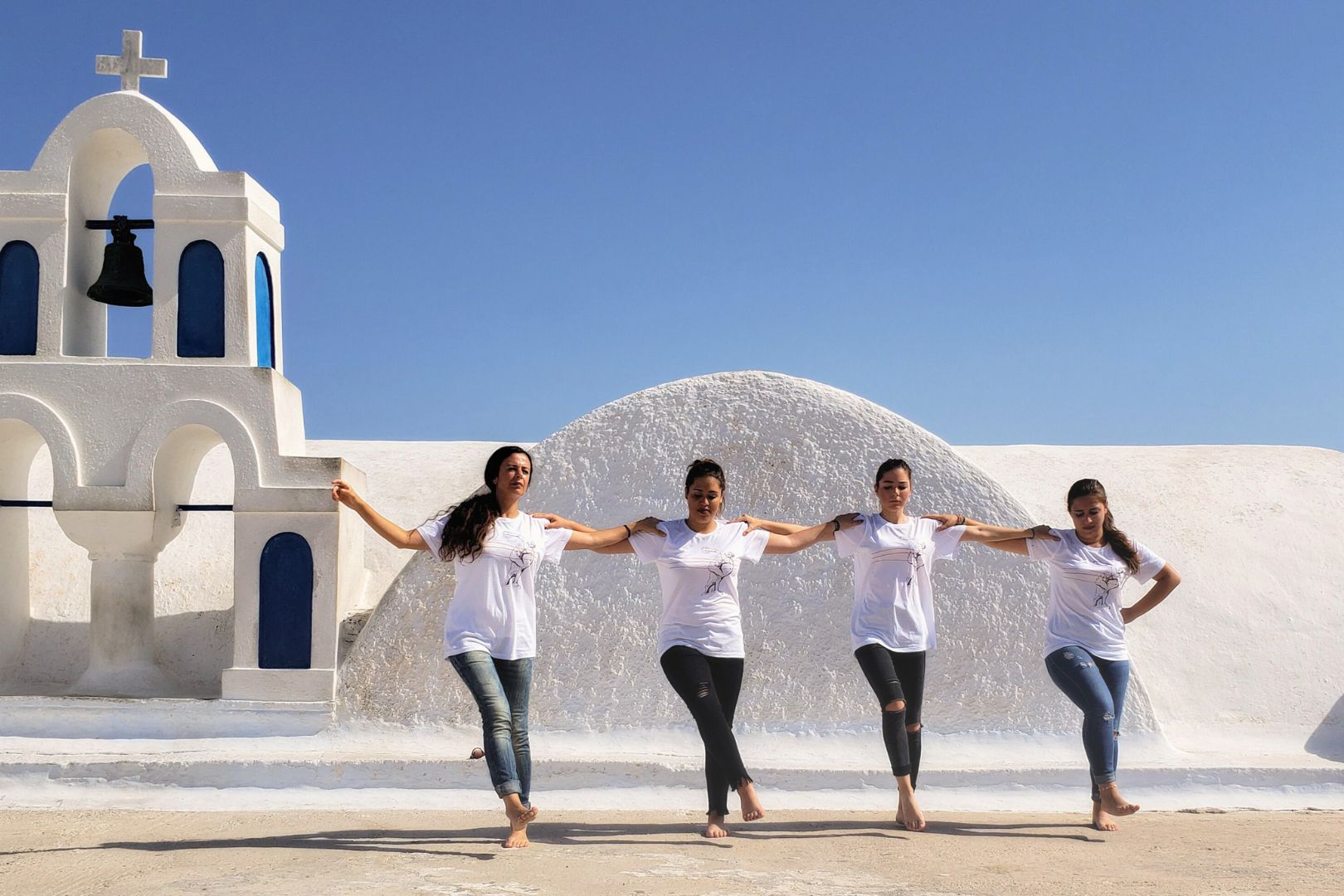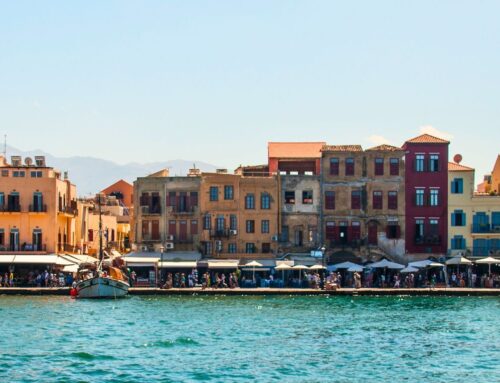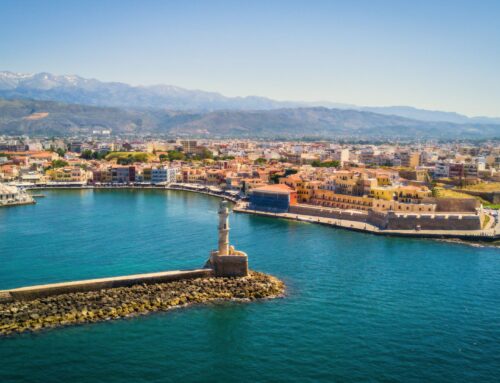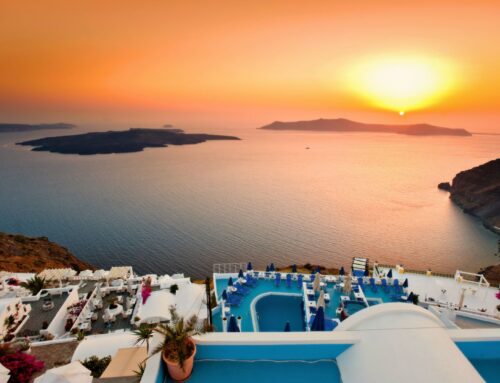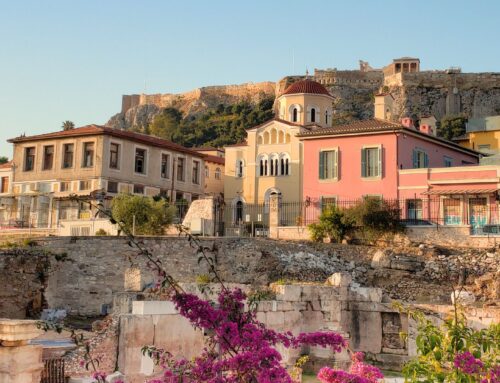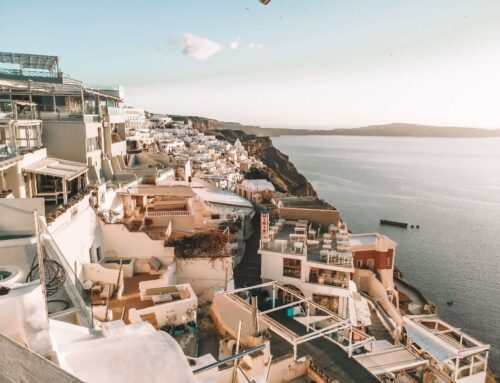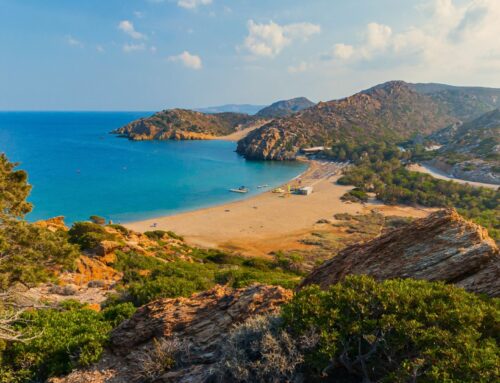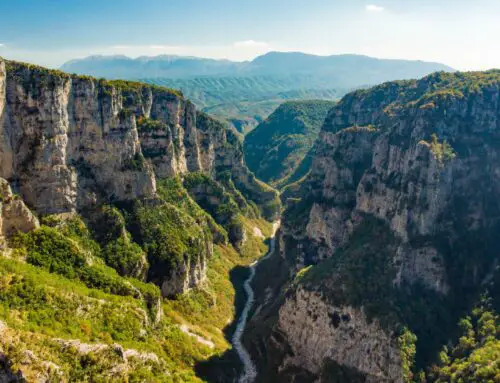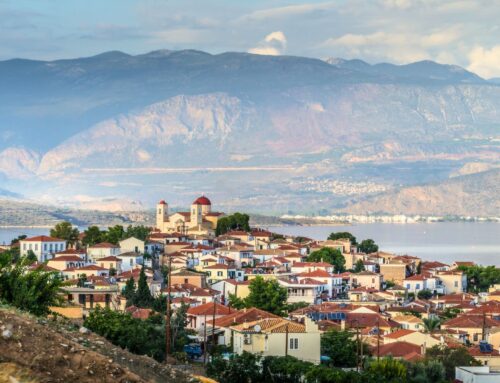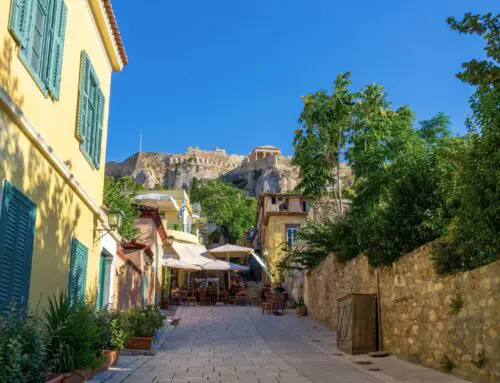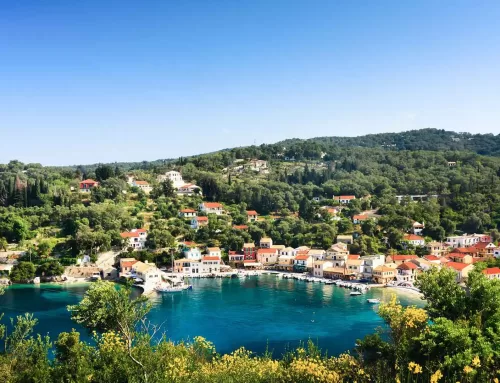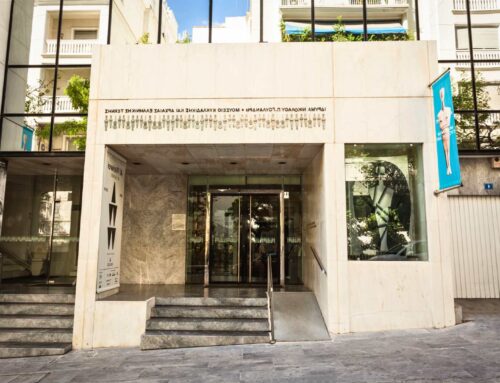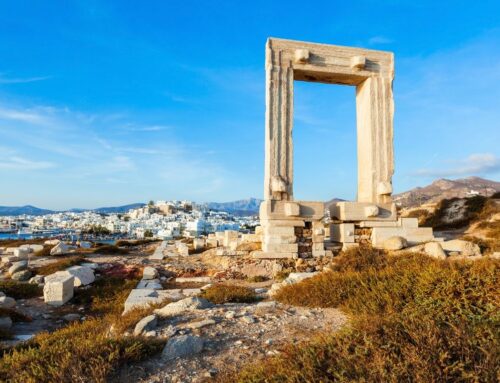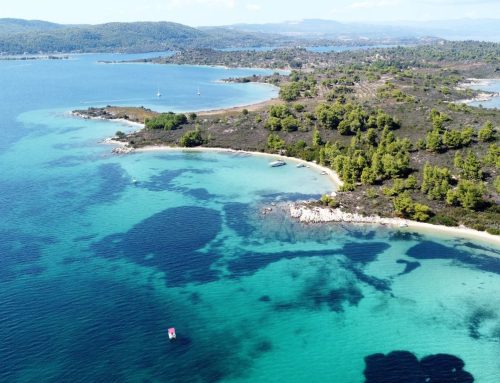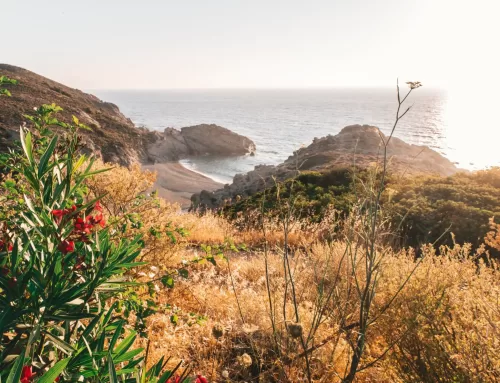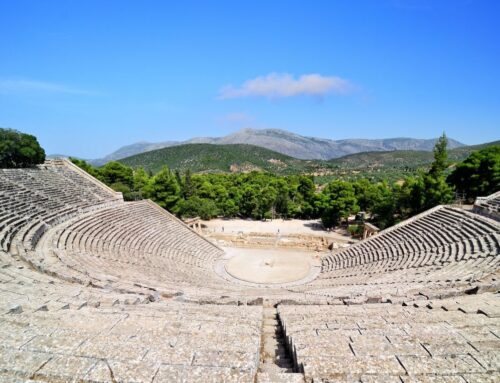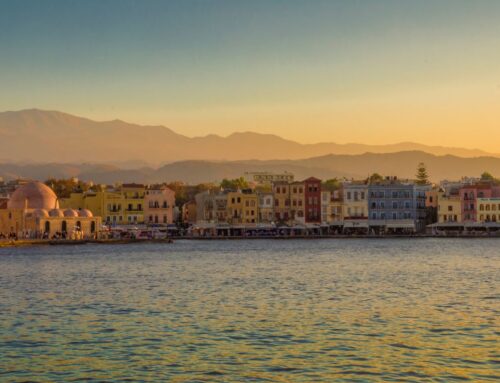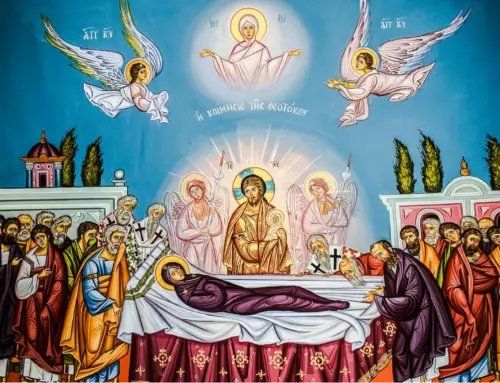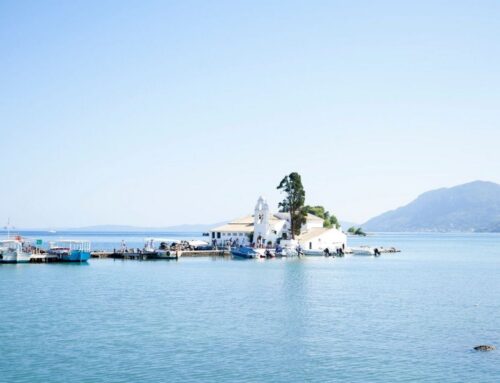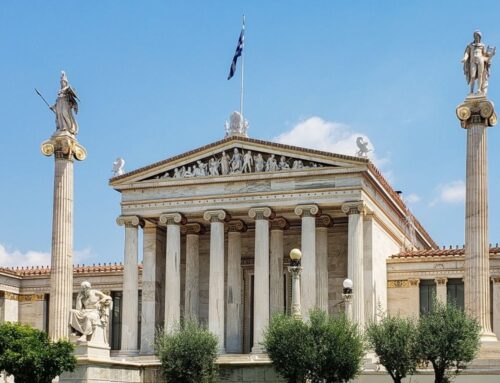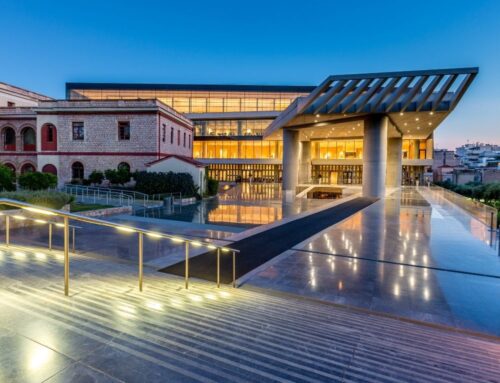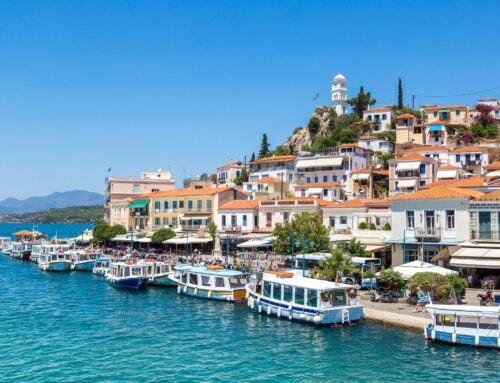Learn more about Greek culture through movies! I hope I don’t speak only for myself when I say that when I am in love with a place or a country, I want the whole package. The sounds, aromas, the people and culture, the food, the language, the sights and nature. Like a new relationship that has yet to fully bloom, we slowly learn more about the places we enjoy. If all goes well, every step and new experience makes us fall deeper in love.
Just like recipes passed down through generations, and a good history book that has many tales to tell, the Greek film industry has a long and rich past. The periods of war and political unrest during the mid 20th century left a distinctive mark on the themes explored through the movies.
If we sketch three rough stages of the Greek cinema, Origins, Golden Age, and Modern, we can see how they correspond to and are influenced by significant events such as World War I and World War II, the Military Junta Period and the modern influences on Greece in the last 30 years.
The Golden Age – Best Greek Movies
The Golden Age of Greek cinema starts after World War II and the civil war and lasts until the period of the dictatorship. During that time, more than a hundred movies a year are produced, a record number that is only second to that of Bollywood movies. Two notable examples from this era are, Never On Sunday (Pote tin Kiriaki) and Zorba the Greek.
Never on Sunday (1960)
A black and white film, starring Melina Merkouri and Jules Dassin who also wrote and directed the movie. Never on Sunday might be categorized as a romantic comedy but the lessons and themes that it explores are deep and advanced especially for that period of time. Melina Merkouri, stars as Ilia, a young prostitute living in Piraeus, while Dassin plays young American scholar Homer, a philhellene who tries to stir Ilia into a life of morality.
Never on Sunday won the Academy Award for Best Original Song and got 4 more Oscar nominations for Best Actress in a Leading Role, Best Costume Design, Best Director and Best Original Screeplay.
For her role, Melina Merkouri would also win Best Actress in the Cannes. The film was not received warmly in Greece or the United States for that matter, facing harsh criticism and censorship, due to the sensitive subject matter that was at the time considered immoral. The spark and pathos of the two protagonists on screen, mirrored their real life scenario. Jules Dassin, an expatriate and lover of Greece, followed a woman to the other side of the world; Merkouri a passionate, free spirit, that carries within her the torch of the Hellenic spirit.
Language: English + subtitles for Greek dialogue
☞ Related: 2 Sunsets: How To Spend Two Days in Santorini
Zorba The Greek (1964)
Arguably the most famous movie made about Greece. Zorba the Greek continues to inspire visitors with its joyful message on life more than 50 years after its original release. Written and directed by Greek Cypriot filmmaker, Michael Cacoyannis, it went on to win 3 Academy Awards , and receive 4 nominations for Best Director, Best Adapted Screenplay, Best Actor and Best Film.
Zorba the Greek follows the story of an English writer, who upon finding out he has inherited land in the island of Crete, travels to Greece where he meets a musician by the name of Zorba. The lives of the two men inexplicably come together, as travel companions and friends, navigating love, work, and tragedies, and not always successfully. The ending comes with Alan Bates’s famous line, “Teach me to dance”, after which Zorba (Anthony Quinn) shows him the steps of the syrtaki. The song they dance to, written by Mikis Theodorakis, became a huge success and has since that day been played countless times in every corner of Greece and the world. It is a movie that demands from the viewer to see and seize life even when things do not go according to plan.
Language: English, Greek
☞ Related: Top 10 Things To Do in Greece in Summer
Modern Era – Best Greek Movies
Touch of Spice – Politiki Kouzina (2003)
It is hard to translate the original title of this movie enough to do it justice and it is even harder to understand why this movie was the biggest box office success of the year, beating even Pirates of the Caribbean, without being aware of the history.
Like the movie itself, that uses food as a metaphor for national identity, the title of the movie operates on multiple levels. You can look at the name as both “Political Cuisine” or “Cuisine of The Polis”. The latter requires a familiarity with Greek and Turkish history to understand.
As a Greek woman that has lived in 6 countries, including Turkey, I have often faced a question similar to “Do Greeks hate the Turks?”. While there has been a lot of tension between the two countries on a political level, it is important to take a moment and explain a few of the events that brought us where we are and also offer a counter view to what a lot perceive as “hate”.
I am not a historian, so feel free to do your own research on any and all of the below topics. My intent with this is to provide a necessary but objective background to the movie and to the two peoples. While this movie was a success in Greece and Turkey it failed to capture audiences from other countries, which may be due to this lack of context.
“The Polis” or “The City”, refers to Constantinople, the city of Constantine the Great and modern-day Istanbul. Constantinople is to this day often referred to as simply “The City” by many Greeks. There are some that argue that Istanbul as a name may even originate from an old Greek saying “is tin poli” meaning “to the polis”.
This may appear strange to those that know that Constantinople fell to the Ottoman Empire in 1453 and has never been under Greek control since. However, the fall of the Byzantine Empire and consequently Constantinople is marked as one of the darkest moments in Greek history and the Orthodox Church. It led to a period of more than 400 years of Ottoman occupation. Some believe that the fact that Greek culture survived the occupation is proof of the tolerance of the Ottoman empire towards other cultures. Others see it as proof of the perseverance and spirit of the Greek people.
The facts remain that this was an ugly and violent period. Independence came in 1821 and in the next hundred years Greece would attempt to reinstate a government with much internal disagreement; become the Kingdom of Greece; form a new stronger government and take part in the Balkan Wars against the Ottoman Empire.
During and after the First World War, the population of Turkey was incredibly diverse. That was a problem that had to be dealt with through ethnic cleansing and mass deportation. Approximately half a million Greeks were killed during that period. The Greek genocide was not the only one. The Armenian genocide is said to number more than 1.5 million people and that is without including Jews, Kurds, Pontic Greeks and other minority groups.
What followed WWI was the population exchange of 1923 between the Greek people living in Turkey and the Turkish people residing in Greece. World War II was a period of relative stability, with Greece having long denounced any claims on Turkish territory and the Turkish government being the first to provide humanitarian aid during the famine crisis in Athens. Despite the troubles of the past, there were still many Greeks that lived in Turkey and vice versa, and there are plenty of accounts of that time as one of peaceful cohabitation. This would once again change in the 1950s over the island of Cyprus.The majority Greek Cypriot population of the island, still under British rule, continued to demand a union with Greece. Turkish resentment led to the Istanbul Pogrom of 1955 where our protagonist is placed in the movie. The riots, that are referred to as “Semptevriana or the September events” in Greece, were a response to the fake news that Greeks had bombarded Kemal Ataturk’s house in Thessaloniki. This indeed happened but under the direction of a Turkish citizen who later confessed. In the meantime, more than 3,000 Greeks hastily fled Istanbul while at least a few dozen were killed. That is an important moment in the life of the protagonist.
Political tension has not seized since then. The Greek people that fled Turkey in the 1950s were initially not welcomed back. A lot of those people still identify as “Polites”, a mix of Greek and Turkish more usually showcased through food.
The movie is about love, friendship, homesickness, national identity and to a deeper level about the price that ordinary people pay when two ideologies crash. The music is melancholic and nostalgic, perfectly capturing the sorrowful lament of Anatolia, the pain and goodbyes, as well as the passion of the people. A young Greek boy and a young Turkish girl. Friends that had to say goodbye and were much later reunited. Watch for the playful language, the music and the incredible discussions around food by grandpa Vassilis, that elevates ingredients and spices into a sort of philosophy. I know that for me, this is one of the best Greek movies, so skip the reviews and see for yourself!
Language: English, Greek, Turkish
Brides – Nyfes (2004)
This is another excellent movie, that came out of Greece in the last few decades. Directed by Pantelis Voulgaris with a beautifully nostalgic and sorrowful score by Stamatis Spanoudakis; executive producer of the movie was Martin Scorsese.
The story line is based on true events. Mail order brides that left Greece, Russia, Turkey and Armenia among other countries in the tumultuous period following World War I. Their destination was the United States and their duty, to present themselves to the men they were to wed. More than 700 women aboard the SS King Alexander, on their way to New York. The movie portrays the lives, dreams and desires of the women of that era, who were bound by their duty to family and country, leaving everything and everyone behind to marry a strange man, armed with just his photograph and a name.
A young American photographer returning to the US (Damien Lewis), falls in love with one of the young brides, Niki (Viktoria Haralambidou), from Samothrace island, and fights for her love. The tender but at times melodramatic romance that follows encapsulates the struggle of a woman of that time following her heart. The discussions between the girls on the ship offer plenty of insight. Some are learning how to say sweet loving words in English for their new husbands, others prepare to cook them their favourite meals. There are other girls that also fall in love and face betraying their families, for some the shame is too much. Even though this is a movie about love, the most powerful scenes are when the women are alone, talking, encouraging and supporting one another.
Language: English, Greek, Turkish, Russian – subtitles for foreign languages mostly in Greek
To Nhsi – The Island (2010)
This is a 26 episode TV series and not a movie, but I couldn’t not include it in this list. The series is based on a book by the same name written by English author Victoria Hislop. The author had previously received much more generous offers from Hollywood producers but chose a Greek channel in order to retain some artistic control over the finished product.
The story starts with a young woman, Alexis Fielding, that lives is London and has longed to find more about her family’s and specifically her mother’s past. Her only clues are a photograph she once day found hidden in a book and the name of the place where her mum grew up, Plaka, on Crete island. Upon her arrival at the village, she finds a woman that was once friends with her mother, and with her help she slowly starts to unravel the complicated past. The tale begins with Alexis grandparents, the parents of her mother, Eleni and Georgos, the first a teacher at the local school, the latter, a fisherman who carried supplies to the nearby island of Spinalogka.
While most of the events of the story are fictitious, Spinalogka, and its legacy as one of the last active leper colonies in Europe (it operated from 1903 to 1957), is real and has since become an even more popular touristic destination.
The TV Series was an incredible success, captivating audiences and resulting in record ratings. It is one of the most expensive TV Series to be produced in Greece, with a budget of more than 4 million euros and was filmed entirely on location on the island of Crete.
While it may take a bit of searching to get hard-copies with English subtitles, it is a captivating but tragic story of family loss, suffering, isolation and hope, that is worth the effort. The scenery is incredible and the Greek cast offers powerful performances of profound emotional depth.
Languages: Greek (with English subtitles)
- And here you have some of the best Greek movies we suggest you get started with. Any other movies you would recommend?
